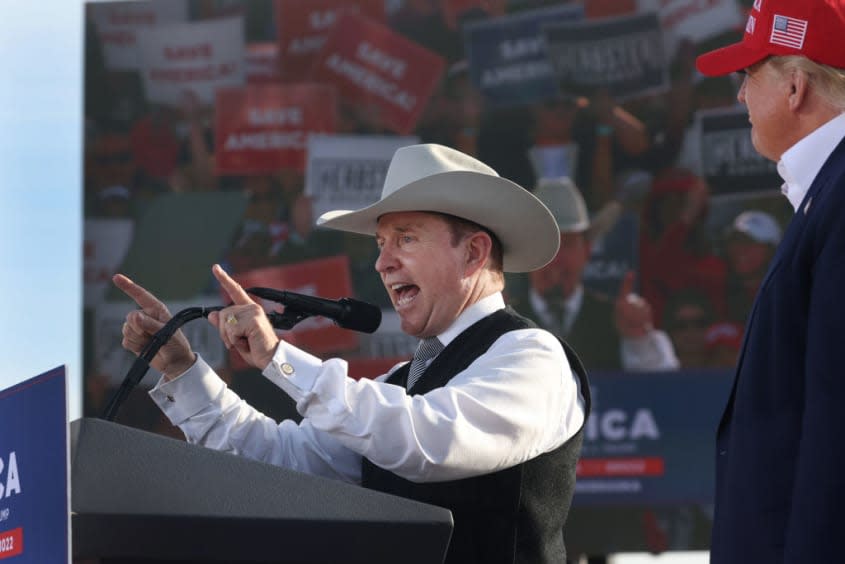What to know as West Virginia and Nebraska head to the polls

- Oops!Something went wrong.Please try again later.
- Oops!Something went wrong.Please try again later.
It is primary day once again in America — this time in Nebraska and West Virginia, where a heated gubernatorial standoff and a redistricting-driven congressional race, respectively, are underway.
Much like last week's Ohio primary, former President Donald Trump has once again taken center stage in both Tuesday contests, as analysts and pundits continue to measure the former leader's hold on the Republican Party by the success of candidates he's endorsed.
In West Virginia's highest-profile primary, Trump has thrown his support behind incumbent Rep. Alex Mooney (R), who is going head-to-head with fellow GOP incumbent Rep. David McKinley thanks to redistricting. McKinley is backed by Sen. Joe Manchin (D-W.Va.) and Gov. Jim Justice (R).
And in Nebraska's main event, Trump is pushing for businessman Charles Herbster, who has been accused of sexual harassment, though outgoing GOP Gov. Pete Ricketts strongly favors University of Nebraska board of regents member Jim Pillen. Herbster denies the assault allegations against him.
Notably, as highlighted by FiveThirtyEight, neither West Virginia nor Nebraska is a swing state, meaning whoever wins the Republican primary in each race will likely win in November.
The Nebraska gubernatorial race also pits Trump's prestige against Rickett's, considering the governor's family is "among the most influential donors in the Republican Party," CNN writes.
Polls close at 7:30 p.m. in West Virginia and 9:00 p.m. ET in Nebraska.
You may also like
Biden announces free internet for millions of low-income Americans
Nepali mountaineer breaks his own world record on Mount Everest
Bragging about blowing up Russian generals could get us all killed

